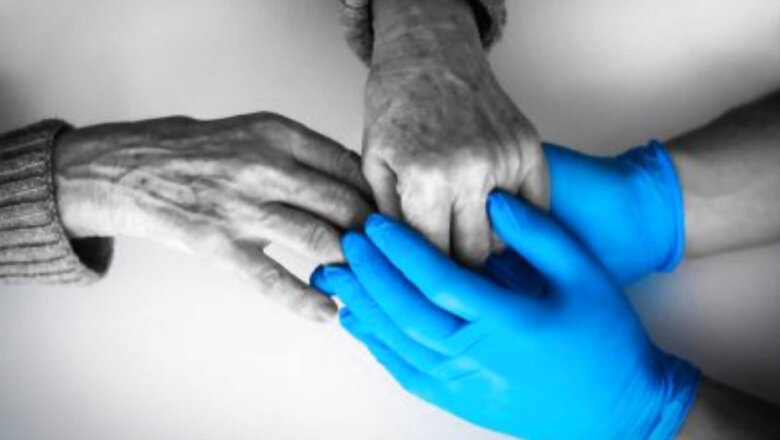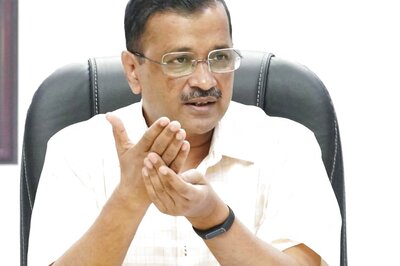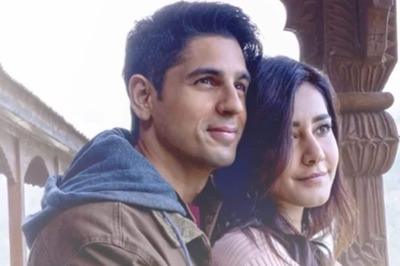
views
There was a time when we (doctors) simply could not engage informally with friends and talk about our day the way everybody else did. Because when we did, we would invariably be interrupted by statements like, “don’t start with medical stuff now, we don’t want to know all that” or “it’s depressing” or even “save medical conversations for your doctor friends”.
The pandemic has changed that completely. Everyone is now interested in what doctors think. Suddenly, nothing is too technical when it comes to medical conversations between friends. Some of us with a meagre following on social media have seen the number of followers go up exponentially in the last year-and-a-half. There is a reason. People are trusting science and doctors more than ever in the face of uncertainty and misinformation. People want to know more about healthcare, something that shouldn’t have needed a pandemic to become a priority.
A virus has brought science, especially medical science, into our living room discussions.
***
In the first months of the pandemic last year, only physicians and scientists were able to appreciate the real magnitude of the problem, and were the ones trying to promote masking and distancing guidelines as a community.
There were struggles at work too. Entering the COVID units came with physical and mental challenges—none of us had imagined that we would have to wear masks and PPEs (personal protective equipment) for hours on end. We were not prepared for having to ignore the fact that we were sweating continuously inside our PPE suits because we had to take care of patients. The masks had to be leak-proof so they left friction burns on our faces, which turned into painful bruises and cuts.
Working without eating, drinking or using the bathroom for 8 hours at a stretch was difficult for many of us. Many a time, we’ve felt dizzy, nauseated, exhausted, but carried on nonetheless. We didn’t have enough masks and PPEs to begin with, till production was increased and procurement was slightly easier. Even when we had enough, there would be issues with quality, which would eventually be addressed.
The threat of getting exposed to the virus is always lurking in a COVID unit and outside it. I still enter the hospital not knowing if I will return home with the virus in spite of not letting my guard down. I remember one particular incident at my hospital when a patient in a non-COVID ward hid their travel history during the first wave and exposed a lot of doctors, nurses, other patients to the virus during their stay. Even the OT (operation theatre) staff had to be quarantined and the OT Complex had to be fumigated. Needless to say, surgeries had to be put on hold. Many patients suffered.
I have been working in a COVID ICU since the first wave. In my hospital, like every other hospital, we have horror stories of how patients deteriorated despite our best efforts and despite following existing treatment guidelines. On several occasions, we have felt completely defeated but didn’t have the luxury to take a step back to pick ourselves up and start again. Burnout has been a glaring, undeniable reality for every healthcare worker, whether they are taking care of COVID or non-COVID patients. Increasing the number of beds does not automatically lead to an increase in the number of healthcare workers.
Breaking bad news crushes you. There were times when doctors had to do it multiple times a day. There’s nothing worse than telling someone that their relative is not going to make it. Triaging when resources were limited was also an extremely traumatic experience that doctors would carry with them for many years to come. We take each case as a personal loss, often remembering faces and names for years.
And even small wins like patients taken off the ventilator, regaining enough strength to cough or sit up on their own, are celebrated by all of us just as much as their families. Like anyone else, success stories give us hope too. After all, everybody needs a little bit of hope.
***
The pandemic has changed the doctor-patient engagement for good, I’d like to believe. I find more people acknowledging our work, more people trying to understand how their bodies react to illness and treatment. At the same time, people, by and large, are no longer afraid of doctors—in fact, there is more trust in the relationship now than before the pandemic. We must preserve this trust at all costs.
Dr Dipshikha Ghosh works in the Covid ICU at Apollo Hospital in Kolkata. The views expressed in this article are those of the author and do not represent the stand of this publication.
Read all the Latest News, Breaking News and Assembly Elections Live Updates here.



















Comments
0 comment